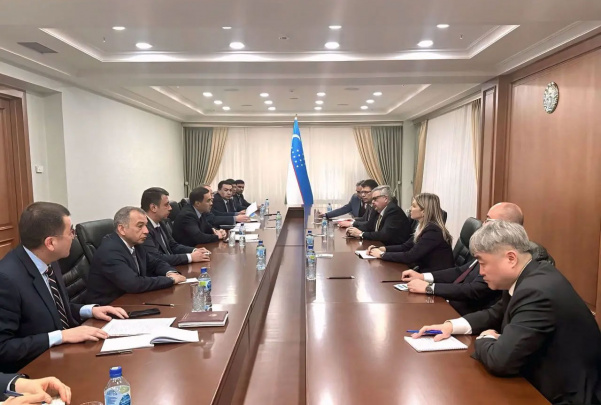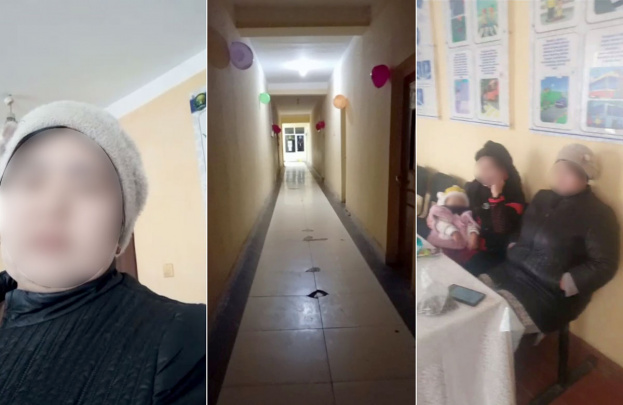Ensuring human rights, creating decent working conditions for people are top priorities for New Uzbekistan – Narbaeva
Uzbekistan has achieved unprecedented results over the past 5 years in both domestic and foreign policy, says the Senate Chairperson Tanzila Narbaeva. “One of the central places among the ongoing reforms in Uzbekistan is taken by the issues of the comprehensive development of labor relations and the labor market, aimed at improving the quality of life of the population and ensuring human interests, which is in line with the UN sustainable development goals.”

Photo: Kun.uz
According to Narbaeva, the key indicators of the development of society and the state have become fundamental changes in the public administration of Uzbekistan, which characterize the consistency, coherence, efficiency and timeliness of the implemented measures in the sphere of labor.
The first is the firm establishment of the principle “It is not the people who serve the state bodies, but the state bodies must serve the people”. This allowed all representatives of state bodies to work in conditions of priority of the interests of citizens.
The second is the openness of state bodies. Uzbekistan has shown in practice that thanks to openness, both representatives of civil society and the world community were able not only to receive all the necessary information, to implement various projects, but also to establish direct contacts, which is extremely important in the rapidly changing modern world.
The third is the transformation of the model of development of society, in which the principle “society – the initiator of reforms” becomes the main driving force of democratic renewal and development.
These key factors contributed to the fundamental improvement of all areas, including the labor market and labor relations in general, and play an invaluable role in building the foundation of the Third Renaissance in the conditions of New Uzbekistan.
“The main goal of our efforts is to ensure a comfortable life for the people, to make them look to the future with confidence,” she said.
The implemented measures in the field of labor relations have already become exemplary for the world community. In particular, on March 10, 2022, the international coalition Cotton Campaign officially announced the abolition of the “cotton boycott” against Uzbekistan.
The leadership of the Coalition noted that “this historic achievement is the result of the leadership of President Shavkat Mirziyoyev to initiate and implement reforms in the field of ending forced labor and developing the cotton sector.”
Many reputable international non-governmental organizations, including Human Rights Watch, the American Apparel and Footwear Association, the US Fashion Industry Association, and a number of other organizations, responded positively to the elimination of child and forced labor and called on international brands to cooperate with manufacturers of Uzbek textile products.
In turn, the lifting of the boycott of Uzbek cotton will serve to the creation of millions of new jobs, especially in rural areas, as well as the attraction of foreign investment in the textile industry of the republic and expand the export potential of Uzbekistan.
“Speaking about the results achieved, I can say that, in 2016, systemic child labor was completely eliminated. Based on this, the European Parliament ratified the inclusion of a textile protocol to the partnership and cooperation agreement between the EU and Uzbekistan. The document provides for the removal of quantitative restrictions and the reduction of customs duties when importing 3,000 items of Uzbek textile goods into the countries of the European Union. As part of the GSP status, customs rates for textile products from Uzbekistan were reduced and ranged from 4 to 12%. In 2019, the export of Uzbek textile products to the EU countries amounted to $56.7 million, in 2020 – $74.1 million (+ 36.4%), and in 2021 – more than $141.8 million,” Narbaeva noted.
In the 2019 US Department of Labor report, Uzbekistan was rated Moderate Progress in Eliminating the Worst Forms of Child Labor. Later the status was upgraded to the second category.
In October 2020, the US Trade Representative (USTR) decided to complete the work to review Uzbekistan’s compliance with the criteria for ensuring labor rights in accordance with the US Generalized System of Preferences (GSP). As a result, Uzbek cotton was removed from the list called “List of Goods Produced by Child Labor or Forced Labor”.
One of the most effective measures in achieving these results was the toughening of criminal liability for the use of child and forced labor. Thus, Uzbekistan has brought national legislation in line with ILO Convention No. 29 on forced or compulsory labor.
In addition, taking into account international experience and in order to improve national legislation, the Law of Uzbekistan “On Combating Human Trafficking” was adopted in a new edition.
Uzbekistan’s Development Strategy for 2022-2026 includes almost all human rights issues and decent work standards.
The country is also working with international partners on the implementation of international standards in the field of labor relations – “Better Work” and “BCI”. At the end of 2021, Uzbekistan applied to the ILO and the World Bank to consider the possibility of assisting in the adoption of “Better Work” and received positive responses.
“The ongoing concrete measures in the field of ensuring human rights, creating decent working conditions, improving labor relations have laid a solid foundation for building the Third Renaissance in New Uzbekistan,” the Senate Chairperson concludes.
Related News

12:25 / 23.02.2026
Human Rights Watch urges Uzbekistan to grant farmers true independence

13:07 / 02.02.2026
Local authorities warned over forced labor during census activities

20:36 / 27.01.2026
Uzbekistan demands Russia protect rights of its citizens working in RF

20:56 / 07.01.2026




